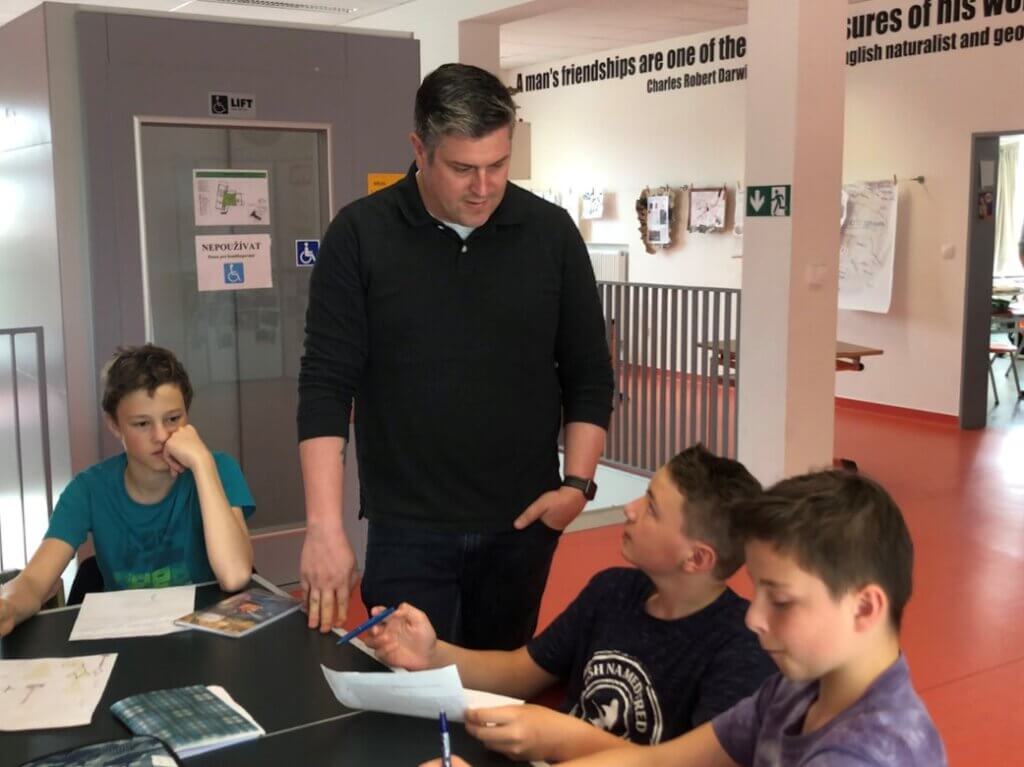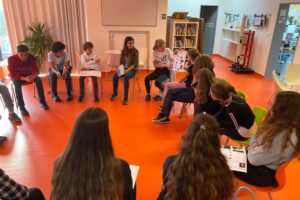Time for reading: 5 minutes
„How are you going to teach english when you do not speak czech?“
this was the question posed to me by my parents when I told them I had decided to leave my home country’s familiar surroundings and move to Europe to begin my career as an ESL teacher. At the time, I didn’t have much of a response other than „I need a challenge, something to expand and broaden my life experience.“ The truth was that I honestly did not know what to expect. Would I be successful? Would I fail? I didn’t know, but my sense of adventure was piqued.
When it came to teaching English, I was thrown into the deep end of the pool. I enrolled in an accredited teacher certification course and received pedagogical training and observational feedback with some intense learning about my native language. However, standing in front of a group of students at the beginning of my very first grammar lesson, I couldn’t help but feel my nerves kick in.
Mistakes are part of teaching
It was a rocky beginning, I spoke too fast, forgot to write essential information on the board, struggled with monitoring and error correction. Still, in the end, my students and I made it through. I made mistakes and had problems in the lesson, but I understood what I needed to do from now on to be the best teacher for my students.
In my experiences teaching students of all ages, I have taught students as young as 11 and as old as 65, I have found that it is crucial to create an environment where students feel comfortable making mistakes. We are all human, we all make mistakes, but then we learn and grow from them. This is key when learning a language. Students will be nervous about learning a new language, they will make errors, but this is the most meaningful thing that can happen.
„Academic success does not come from how smart, or motivated students are. It comes from how they feel about their mistakes.“ Typically, when a student makes an error, the response is not something that they analyze rationally but rather emotionally. It can make them nervous, embarrassed, or affect their confidence and cause them to have a natural response of avoidance. This is where we, as teachers, have our most significant responsibility. We have to change students‘ attitudes towards making errors.
It is not about whether i can speak czech it is about environment created in the classroom
In my classroom, I strive to help my students understand their mistakes, view them as less negative, and shift this into a positive. In the classroom, it is not about whether or not I can teach English without speaking Czech; it’s about the environment created where my students feel comfortable, engaged, and motivated to learn English. This is how I answer my parents now when they ask “how do you teach English.”





